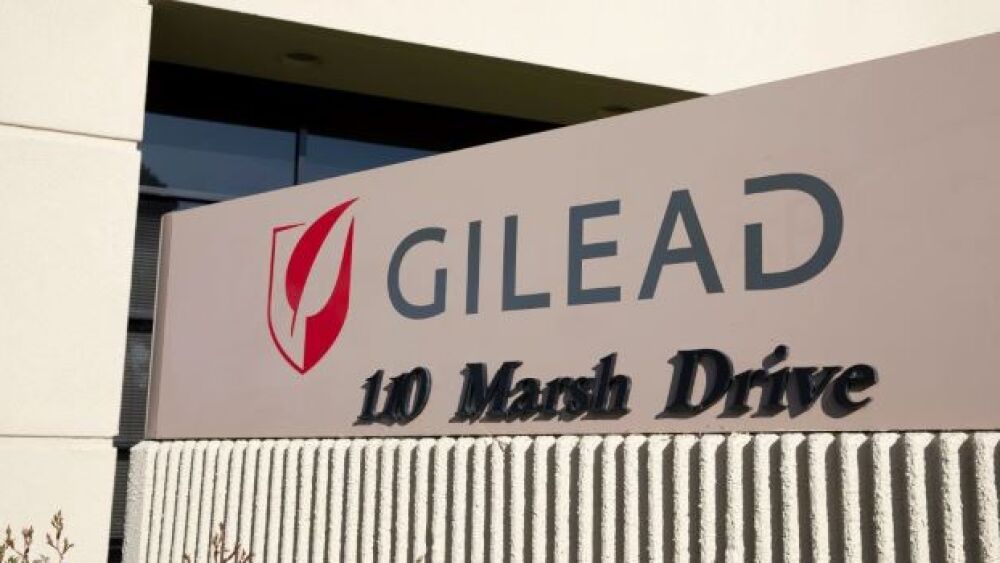Gilead Sciences revealed in a call with analysts that the hold has now been expanded to additional magrolimab studies.
Liu Guanguan/China News Service via Getty
A week after safety issues forced a partial clinical hold on the combination of magrolimab plus azacitidine as a potential treatment for myelodysplastic syndrome (MDS), Gilead Sciences revealed in a call with analysts that the hold has now been expanded to additional magrolimab studies, raising questions about the future of that drug.
Magrolimab is a potential first-in-class investigational monoclonal antibody against CD47 and a macrophage checkpoint inhibitor. The asset was at the center of Gilead Sciences’ $4.9 billion acquisition of Forty Seven, Inc. in 2020. As an oncology asset, magrolimab is designed to interfere with the recognition of CD47 by the SIRPα receptor on macrophages, to block the “don’t eat me” signal used by cancer cells.
The partial clinical hold placed last week by the U.S. Food and Drug Administration was based on what Gilead Sciences called “an apparent imbalance” in investigator-reported, suspected unexpected serious adverse reactions (SUSARs). In that study, magrolimab was paired with the Bristol Myers Squibb chemotherapy drug azacitidine, marketed under Vidaza and Onureg. Out of a sense of caution at the time, Gilead Sciences placed all studies assessing the combination on clinical hold until the safety data can be analyzed.
Now, partial clinical holds have been placed on two other studies assessing magrolimab that are not in combination with the Vidaza. During the company’s earnings call this week, Chief Medical Officer Merdad Parsey reported that a partial clinical hold was also placed on the Phase II multiple myeloma study and a fully-enrolled Phase II diffuse large B-cell lymphoma (DLBCL) study. Parsey said the Phase II multiple myeloma study had not begun to enroll patients when the hold was placed.
Parsey also noted that a Phase I b study assessing magrolimab in MDS has been halted. He said there is no longer a viable path to submission based on regulatory feedback. Existing data from the Phase Ib study will be presented later. Parsey said the company remains focused on its Phase III ENHANCE study in the same indication.
“Importantly, patients currently enrolled in our magrolimab studies can continue treatment, and our compassionate use programs remain open. We are working with FDA to take a comprehensive look at the safety data, and we’ll share the outcome as quickly as we can,” Parsey said, according to a transcript of the call. “In the meantime, we remain committed to the magrolimab development program and believe that it has the potential to address an important unmet medical need in these seriously ill patients. As you know, the patients in our ENHANCE Phase III trial have a very high unmet need, with a median overall survival of only one to three years on the current standard of care.”
Parsey noted that the FDA wants to look at the entirety of safety data generated so far in the magrolimab studies. He explained in the call that he is blinded to the data itself, but what investigators have available will be shared with the FDA and the data monitoring committee. Parsey added that the safety concerns are seen as “temporary challenges” right now and the company plans to resolve them as quickly as possible.
“I don’t think these challenges really shake our confidence for the portfolio overall, and our overall strategy hasn’t changed. We’re really committed to the magro development program, and we think that it really continues to have the potential to really address an important unmet medical need,” he said.
Featured Jobs on BioSpace





